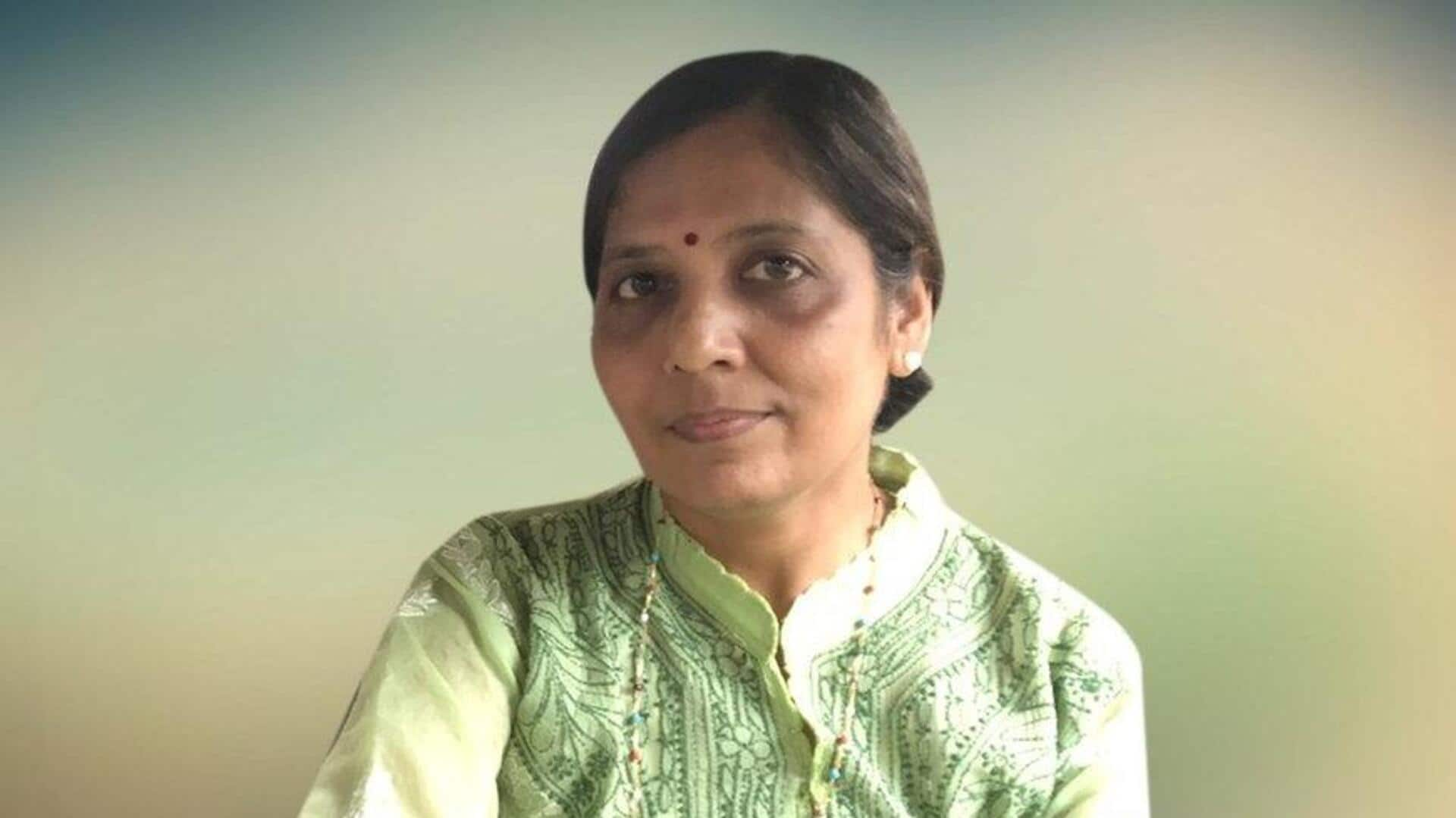
Delhi HC stays summons to CM Kejriwal's wife Sunita
What's the story
The Delhi High Court on Monday put on hold the summons issued to Delhi Chief Minister Arvind Kejriwal's wife, Sunita Kejriwal, for allegedly violating the Representation of People's Act (RPA).
On August 29, Metropolitan Magistrate Arjinder Kaur of Delhi's Tis Hazari Court issued the summons based on a complaint by Delhi Bharatiya Janata Party (BJP) Secretary Harish Khurana.
He claimed Sunita violated the RPA by allegedly enrolling as a voter in two constituencies: Uttar Pradesh's Sahibabad and Delhi's Chandini Chowk.
What Next?
Khurana alleges fraud by Sunita
In 2019, BJP leader Khurana filed a complaint against Sunita, stating that registration of dual voter IDs was a violation of Section 17 of the RPA.
He further said she should also be punished under Section 31 of the act for allegedly making false declarations.
Notably, while issuing the summons, Metropolitan Magistrate Kaur cited Supreme Court judgments, emphasizing that explicit reasons for summoning the accused were not needed.
Twitter Post
Twitter Post
#Breaking Delhi HC stays trial court order issuing summons to Arvind Kejriwal's wife Sunita Kejriwal in a case alleging that she holds two voter ID cards.
The case had been filed on BJP leader Harish Khurana's complaint. Summons were issued on August 28, 2023.
#DelhiHighCourt… pic.twitter.com/tGrgGE6Dah — Bar & Bench (@barandbench) November 6, 2023
Details
Sunita's petition and Delhi HC's response
Following the summons, Sunita reportedly filed a petition in the Delhi HC, arguing the magistrate's decision lacked "application of mind."
Senior advocate Rebecca John, who appeared for her, contended that an offense under the RPA can only be considered if a person submits a false affidavit.
She added there was no material in Khurana's complaint to establish that Sunita made any such false declarations.
The HC stayed the summons until February 1, 2024, when the next hearing is scheduled.
Quote
'This is a private complaint': Sunita's lawyer
During the hearing on Monday, John said, "This is a private complaint. The magistrate, before issuing summons, the least [they] could have done was check with the Election Commission."
Context
About RPA, more on Khurana's complaint
The Representation of the People's Act, 1951, provides for the conduction of free and fair parliamentary and state assembly elections in India.
Section 17 of the act strictly prohibits any individual from being registered as a voter in more than one constituency, while Section 31 deals with false declarations. As per Khurana, Sunita has violated these RPA sections.
Notably, a Delhi court in 2019 also summoned the chief electoral officers of Uttar Pradesh and Delhi in relation to the case.